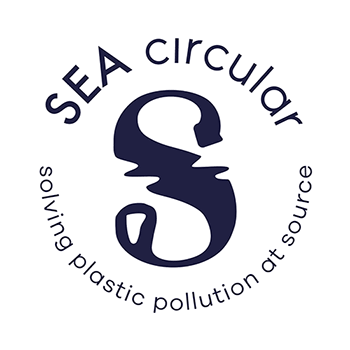
Regional Dialogue on Plastic Credits – A Circular Solution for Plastic Waste Management
Event Date: 28 September 2022, 14:00 – 16:00 (GMT +7)
Event Location: Bangkok
Event Overview: According to estimates of UNEP, over 3 billion people do not have access to proper waste management services . Especially in low-income countries, the collection of recyclables depends almost entirely on the informal sector. Informal waste workers are amongst society’s most marginalized groups with no recognition of their essential services, often being deprived access to sustainable income sources and basic social services.
The plastic waste crisis that we are facing is real – in January 2022, a study published in Environmental Science suggested that we are currently operating outside the planetary boundary in terms of plastic production and pollution (summarized as “novel entities”). The lack of proper management of waste has also led to an annual accumulation of up to 12 million metric tonnes of plastic waste leaked into our oceans and rivers. This amounts to 86% of plastic waste that could otherwise be collected, sorted and recycled back into a circular economy. While systemic approaches for plastic circularity and closing gaps in waste management infrastructure may take time to be in place, short-term solutions may alleviate the symptoms but may bring about new challenges and possibly overlook root causes to the problem.
One emerging model that could bring multiple co-benefits to the environment (reduction in plastic waste leaked into the rivers and oceans by increasing sorting and collection) and social development of marginalized group (the informal waste pickers) is plastic credit. Plastic credit mechanisms are evolving rapidly and seen as a means to support collection of both recyclable and non-recyclable plastics, bridging the gaps in formal waste management infrastructure. It enables the informal sector in the waste management system to engage in plastic waste markets and its value-chain. According to the World Wildlife Fund (WWF), a plastic credit is a transferable unit representing a specific quantity of plastic that has been collected and possibly recycled from the environment. Plastic credit is seen to serve as the vehicle for interaction between businesses and informal waste workers.
The evolving plastic credits space is however not well understood by all and therefore a better understanding of the strengths and weaknesses of plastic credits in its current form can help build confidence, transparency, and a level playing field that ensures the informal waste collectors are also fairly rewarded for their efforts. Meanwhile, many see plastic credits as an instrument that should only be used by producers as part of efforts to achieve extended producer responsibility after other solutions have been applied.
Understanding of plastic credit concepts and market mechanisms will support the development of a pathway towards a harmonized standard for plastic credits. This regional dialogue aims to explore the views of key players and stakeholders on how plastic credits can support plastic circularity in the region. It aims to inform practitioners and stakeholders on what is required to support a fair and level playing field for plastic credits, to achieve a harmonized operational framework. Prior to the panel discussion, participants of this event will be informed by insights gained from two research projects supported by the SEA circular project. The first study conducted by the International Solid Waste Association assessed the contribution of plastic credit schemes to reducing plastics pollution and improving recycling, the second study carried out by Yunus Environment Hub focused on risks and opportunities of plastic credit financing instruments being introduced into the informal waste management sector.
To learn more about the event, please click here.
Key Objectives:
The regional dialogue aims to:
- Enhance understanding on concepts and key aspects of plastic credits as a solution for plastic waste management;
- Share insights on the challenges and areas that can benefit from harmonization given the rapidly evolving landscape of plastic credits, based on findings from the recent research studies; and
- Provide a platform for exchange of key insights among plastic credit actors on trends, challenges, and strategies for adoption of plastic credits as a solution to circularity in the plastic value chain.
Expected Key Takeaways:
- Understanding of plastic credits and its place in promoting circularity in the plastic value chain
- Insights on the correlation of plastic credits with circularity enabling instruments such as EPR (Extended Producer Responsibility), HRBA (Human Rights Based Approach) and RBC (Responsible Business Conduct)
- Holistic view of plastic credits system and mechanism for market integration and standardization
Structure of the Dialogue:
Compositions of Audience:
The targeted audiences will be from ASEAN region which cover the following sectors and organizations:
- Industry and business associations
- Civil society organization / local stakeholders / local communities
- Economic / micro finance / public policy / environment institutions
- NGOs/INGO
- International organizations
- Academic institutions
- Bank and finance agencies
- Public organizations/policy makers
- Community workers
- SME and local entrepreneurs
- Waste treatment companies
- Environment pollution prevention agencies
- Start-up companies
| Time | Contents/Activities |
|---|---|
| 14:00 – 14:10 | Opening session |
| 14:10 – 14:20 | Keynote address on market environment and instruments for plastic waste management |
| 14:20 – 14:40 | Assessing the contribution |
| 14:40 – 15:00 | Risks and opportunities of plastic credit |
| 15:00 – 15:55 | Panel Discussion and Open Forum:
|
| 15:55-16:00 | Closing remarks |
Events




